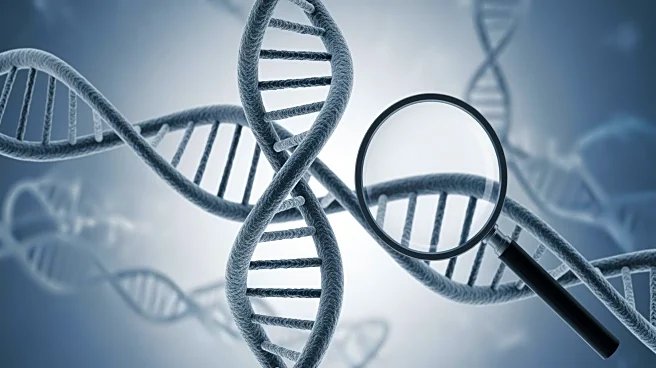What's Happening?
James Watson, a Nobel Prize-winning scientist known for co-discovering the DNA double helix, died at 97. His death was confirmed by Cold Spring Harbor Laboratory, where he worked for decades. Watson's discovery with Francis Crick in 1953 was a major scientific
breakthrough, but his later comments on race and intelligence led to significant controversy. His remarks resulted in the loss of his honorary titles and professional ostracism. Despite his scientific achievements, Watson's legacy is complicated by his controversial views.
Why It's Important?
Watson's discovery of the DNA structure has had a lasting impact on molecular biology, influencing fields such as medicine, agriculture, and forensics. His work laid the foundation for the biotechnology industry, affecting gene therapy and genetic engineering. However, his controversial views highlight the ethical challenges in science, raising questions about the impact of personal beliefs on professional legacies. Watson's story serves as a reminder of the complex interplay between scientific innovation and societal values.
What's Next?
Watson's death may lead to discussions on the ethical responsibilities of scientists and the impact of personal beliefs on their legacies. Institutions may reassess their affiliations with figures whose views conflict with contemporary values. The scientific community might reflect on how to balance recognition of achievements with accountability for personal conduct.
Beyond the Headlines
Watson's career illustrates the challenges of maintaining a positive legacy amidst personal controversies. His story underscores the importance of addressing biases in science and fostering inclusive environments. The scientific community may continue to grapple with how to honor contributions while confronting problematic aspects of a scientist's history.

















